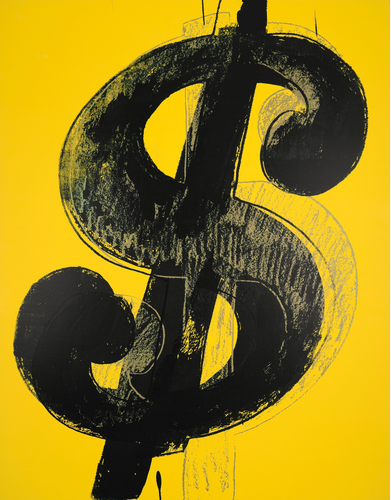Analysis
What You Need to Know When Art Sales Tax Investigators Knock on Your Door
Don't even think about shipping works to New Hampshire.

Don't even think about shipping works to New Hampshire.

Artnet News


Dollar Sign (Yellow) (1981) by Andy Warhol.
Sales Tax, or, more properly known as sales and use tax, is a tax that businesses are required to collect on behalf of the local tax collector. The rules vary from state to state. (See “New York DA Launches Secret Art Sales Tax Investigation“).
According to David Lifson, a New York CPA (at Crowe Horwath) with extensive art world sales tax experience, all sales are subject to tax when artwork is sold unless a specific exemption applies. The dealer/vendor has the responsibility and the burden of proof to demonstrate the applicability of any exceptions.
Art law attorney Thomas C. Danziger, Esq. adds that, as a general rule, only two exceptions apply in this area: sales tax does not have to be collected for works sold to other dealers for resale, and no tax is due for works delivered out of state as long as the dealer does not conduct business in that other state. Sales for resale require obtaining a resale certificate in good faith from another licensed person.
Items shipped out of state must have complete, clear, and convincing delivery documentation to show the goods were not received by the purchaser in New York State. These documents must be produced in good faith based on all the circumstances surrounding the shipment. As Dennis Kozlowski of Tyco found out after paying $2 million of sales tax and about $1.2 million of interest and penalties to settle charges in connection with the shipment of a dozen paintings about a dozen years ago, shipping expensive art to New Hampshire and bringing it back to New York is not a delivery made in good faith.
“When a dealer forgets to charge sales tax, he or she is still responsible for the tax,” Mr. Lifson notes. “You cannot hide behind a corporation or limited liability company. Sales taxes are personal. Responsible parties are on the hook for sending the state its sales tax.”
Collectors who also regularly sell must be aware of the use tax risk that arises from the display of art for personal enjoyment. Display for sale and display for enjoyment can be a difficult judgment call, yet tax is due on personal “use.”
Timing is sensitive, too. Sales tax must be paid over to the state based on delivery of goods, generally when title passes, not based on the collection of an account receivable from a client.
“This is a surprise to many folks who have argued this is not fair,” said Mr. Lifson, “but no one says taxes have to be fair.”